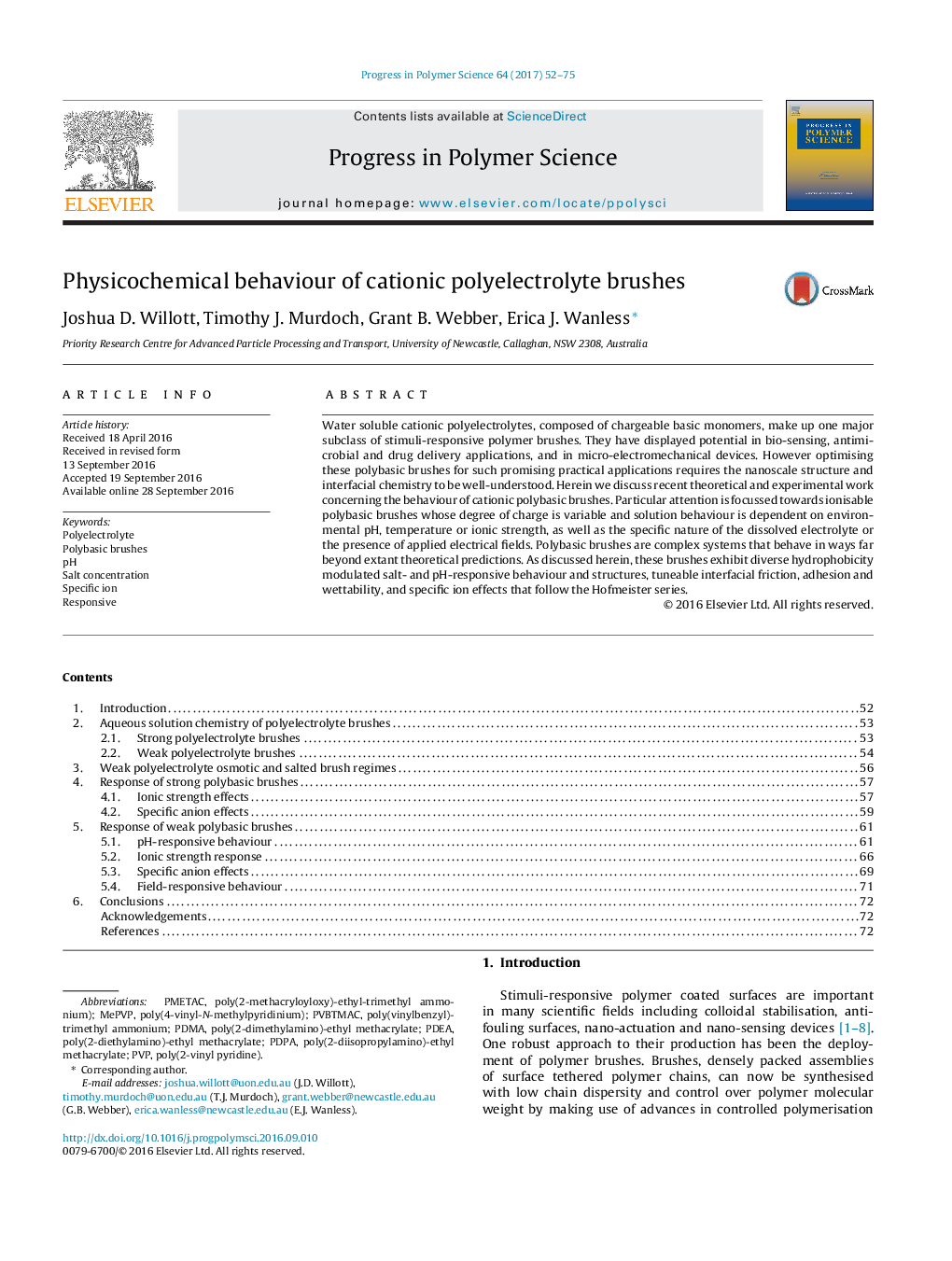| Article ID | Journal | Published Year | Pages | File Type |
|---|---|---|---|---|
| 5207924 | Progress in Polymer Science | 2017 | 24 Pages |
Water soluble cationic polyelectrolytes, composed of chargeable basic monomers, make up one major subclass of stimuli-responsive polymer brushes. They have displayed potential in bio-sensing, antimicrobial and drug delivery applications, and in micro-electromechanical devices. However optimising these polybasic brushes for such promising practical applications requires the nanoscale structure and interfacial chemistry to be well-understood. Herein we discuss recent theoretical and experimental work concerning the behaviour of cationic polybasic brushes. Particular attention is focussed towards ionisable polybasic brushes whose degree of charge is variable and solution behaviour is dependent on environmental pH, temperature or ionic strength, as well as the specific nature of the dissolved electrolyte or the presence of applied electrical fields. Polybasic brushes are complex systems that behave in ways far beyond extant theoretical predictions. As discussed herein, these brushes exhibit diverse hydrophobicity modulated salt- and pH-responsive behaviour and structures, tuneable interfacial friction, adhesion and wettability, and specific ion effects that follow the Hofmeister series.
